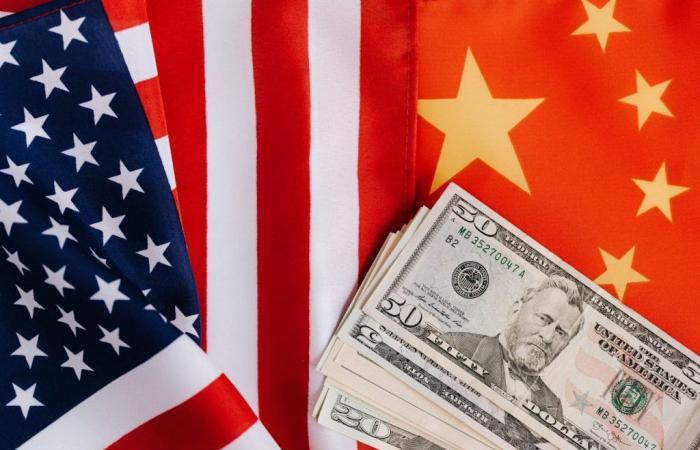
The measures taken by China to support its economy have sparked some optimism from investors. (source: Karolina Grabowska / Pexels)
Last week, as mainland China’s financial markets were closed for a national holiday, investors poured $5.2 billion of new assets into U.S.-based exchange-traded funds (ETFs) that target Chinese markets, and some asset managers hope the optimism will continue.
The influx took place after the announcement in late September of a first package of stimulus measures from Beijing including interest rate cuts and changes to bank liquidity requirements, which peaked on September 30 with the biggest one-day rally Chinese stocks have seen since 2008.
Tuesday is the first working day in China after a series of public holidays last week, and senior officials from China’s top economic planning agency are expected to provide briefings on steps to implement policies to promote growth economic.
China’s moves have sparked some optimism that the dramatic turnaround in investor sentiment will continue and extend. The inflow of $5.2 billion in the week ending October 4 compares with an average weekly outflow of $83 million so far in 2024, and an average weekly outflow of 27 million dollars last year, according to Morningstar data.
“The market has been waiting for a credible commitment from China to revive its economy,” said Michael Reynolds, vice president of investment strategy at Glenmede Trust, a New York-based wealth management firm. “Now we have to make this happen.”
The authorities also announced their intention to increase their investments in domestic ETFs. According to the Financial Times, the China Securities Regulatory Commission announced in late September that it plans to quickly approve new ETFs that would follow China’s “Star Market,” a segment of the Shanghai Stock Exchange devoted to technology companies, and to direct more capital flowing to ETFs based in mainland China.
“The Chinese markets have been so oversold,” said Jonathan Krane, founder and chief executive of KraneShares. His company’s flagship ETF, the KraneShares CSI China Internet, attracted $1.39 billion in new assets last week alone, bringing year-to-date flows back to positive territory, according to Morningstar.
The $8.3 billion KraneShares ETF is one of more than two dozen China-focused funds that have posted double-digit returns over a week, gaining between 10 and 28 percent. and outperforming the more than 3,000 other ETFs traded on the U.S. market last week, according to Paris-based data analytics firm TrackInsight.
Krane says the stock price surge is just the beginning as investors have little exposure to Chinese stocks after the benchmark CSI 300 index fell sharply in February, itself a reaction to fears growth sparked by factors as diverse as the housing collapse, poor economic data, deflation and geopolitical events.
“It’s just a very small percentage of the world that is coming back to the market or saying we need to rethink China,” Mr. Krane added. “These are just the first investments.”
The vast majority of money last week flowed into the largest ETFs that offer broad exposure to a range of large-cap Chinese stocks. BlackRock’s $7.99 billion iShares China Large-Cap ETF saw inflows of $2.7 billion last week, according to Morningstar.
“When moves are this large and violent, money flows into these index products first,” said Michael Barrer, head of ETF capital markets at asset management firm Matthews Asia. Nonetheless, assets in the Matthews China Active ETF, worth $44.8 million, soared following net inflows of $11.7 million last week.
For China-focused ETFs to retain the new assets, Beijing will need to announce a set of detailed, high-impact reforms, according to Jason Hsu, founder and chief executive of Rayliant Global Advisors, an asset management firm.
“The next bazooka that Beijing will fire must take the form of a formalization of the new recovery proposals and a timetable,” he said.
Dave Mazza, managing director of Roundhill Investments, said he sees the tide turning in investor sentiment.
Last week, Roundhill launched the Roundhill China Dragons ETF, which focuses on nine of the Chinese technology companies it considers to be the most important and innovative. It attracted net inflows of $35 million in its first two days of trading, Mr. Mazza said.
“We thought that at some point the tide would turn and China would once again become a country in which it would be possible to invest,” Mr. Mazza said.
((Automated translation by Reuters, please see disclaimer https://bit.ly/rtrsauto)) by Suzanne McGee





